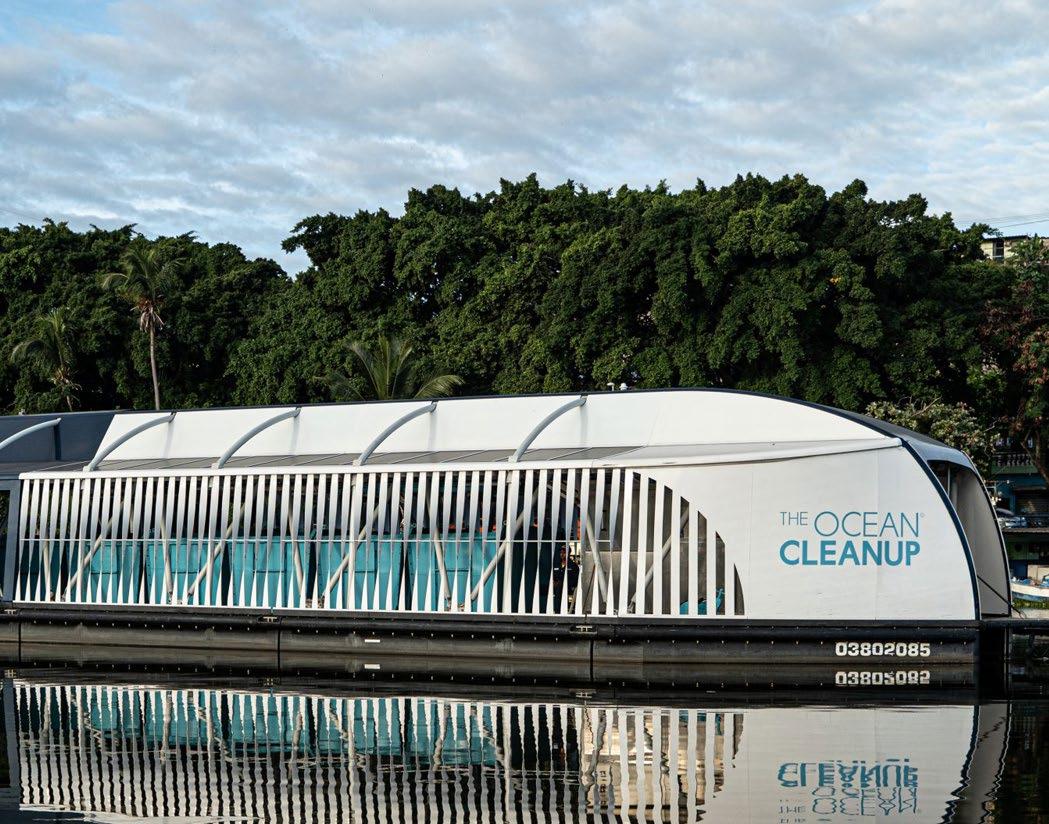
7 minute read
Oceans of sustainability
from SPN Sep 2021
by spnews.com
The Coca-Cola Company and The Ocean Cleanup are teaming up behind a clear objective: to stem the tide of marine waste by intercepting plastic debris from rivers around the world.
Coca-Cola signs up with its Global Implementation Partner for the ‘Ocean Cleanup’ project
Advertisement
The partnership, which brings together Coca-Cola’s scale and global network with The Ocean Cleanup’s technology and data-driven solutions, will implement cleanup systems, including the Dutch nonprofit’s solar-powered Interceptor, in 15 rivers by the end of 2022. Two Interceptors included in this partnership have already been installed by The Ocean Cleanup in Santo Domingo, the Dominican Republic and Can Tho, Vietnam. These initial deployments lay the groundwork for the organization’s goal to expand the project over the next five years
Easy to handle ■ Easy to store ■ Easy to recycle

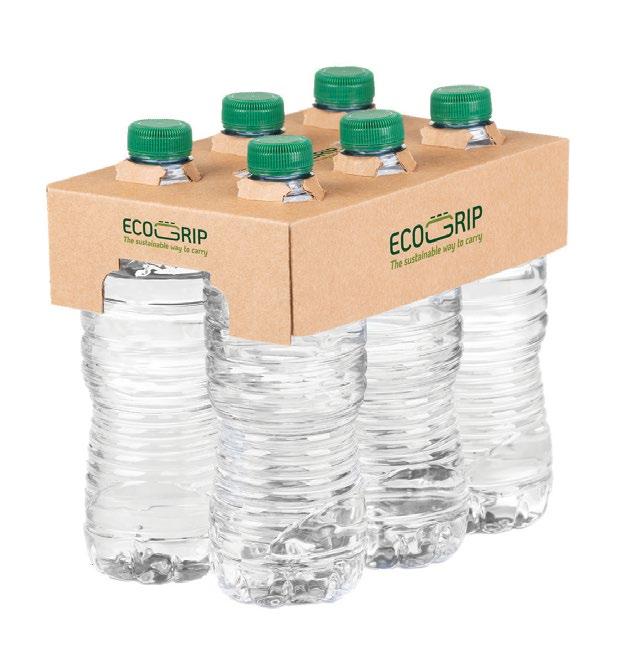

For more information contact us at: Daphne.Deledicq@vpkgroup.com or www.blueboxpartners.eu
Sustainable Packaging News half-page Horiz 182mm x 116mm V5.indd 1

Your Sustainable Partner
Blue Box Partners is a paper and packaging producer pan-European alliance. Together with Klingele Paper and Packaging Group, VPK, Hinojosa and Cart-One, we deliver local solutions to global problems. We work with brands to develop sustainable packaging solutions for the long term. Our latest innovative solution is ECOGRIP.
A corrugated cardboard alternative to plastic shrink wrap
Sustainable packaging is an important issue for our planet, especially when it comes to single-use plastics (SUP) that are not biodegradable. While industry continues to improve recycling rates for plastic bottles and containers, an important part of shrink-wrap falls into the category of single-use plastic. More and more, governments, environmental groups and consumers are demanding solutions around sustainable biodegradable packaging.
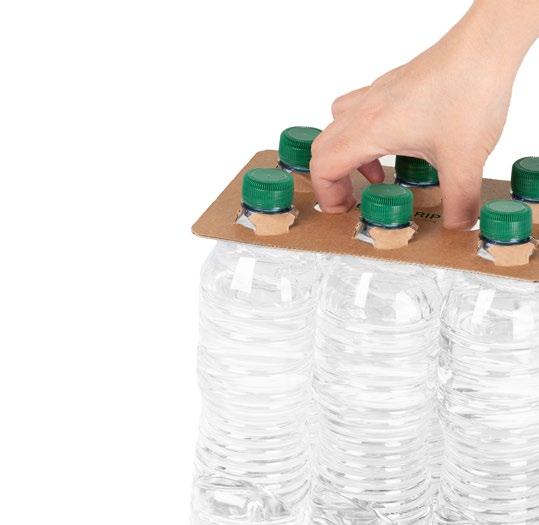
06/08/2021 14:59
The result development and research
ECOGRIP is the result of extensive development and structural research. The concept allows carrying multiple bottles. It provides a 100% biodegradable packaging that can be adapted to fit any type of bottle on the market. Of course, the impact on the supply chain of any alternative to shrink wrap needs to be customised. Any concept needs to be easy to transport, easy to handle and easy to store to meet demand.
Please get in touch to find out how we can help and assist you with your sustainable packaging requirements.
Please contact BBP Chief Innovation Officer Daphné Deledicq for more information:
Daphne.Deledicq@vpkgroup.com

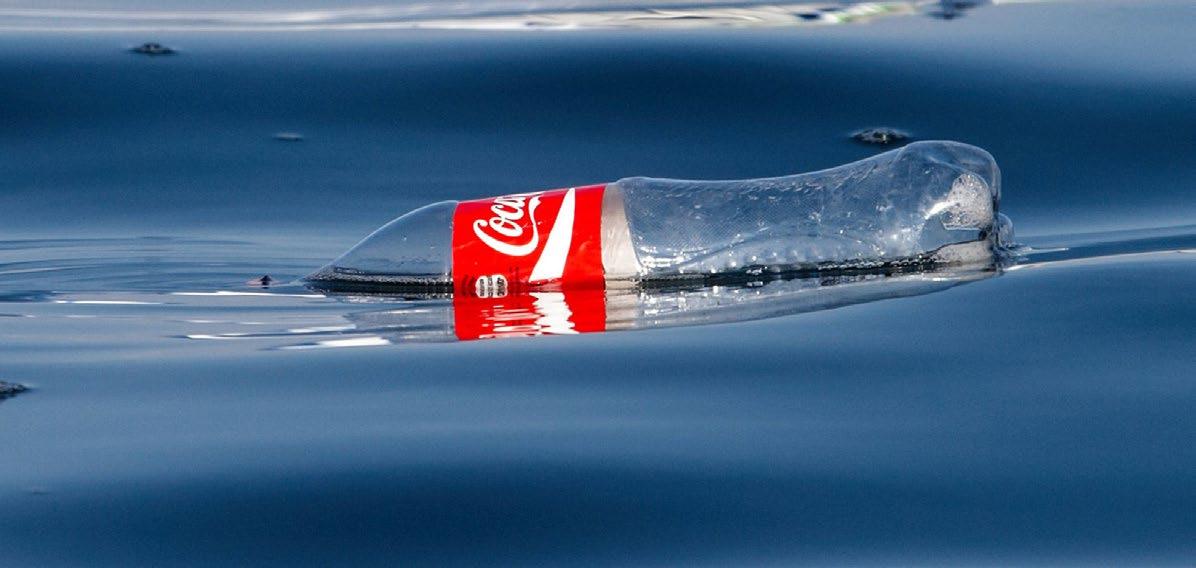
Plastic-free oceans
“The Ocean Cleanup’s mission is to rid the oceans of plastic,” said Boyan Slat, Founder and CEO, The Ocean Cleanup. “With 1,000 rivers emitting nearly 80% of river-carried plastic into oceans, this massive problem grows by the day, which is why we are always looking to accelerate our progress. Among the waste we collect with our cleanup systems, we find many plastic bottles, including Coca-Cola packaging, so I applaud them for being the first in the industry to join our mission, as part of their wider actions to make a positive impact on worldwide plastic pollution. Our clear intent is to take our learnings from this partnership, which has the potential to evolve in the future, and continue to scale rapidly. That’s why I believe this is good news for our oceans.”
Unveiled in 2019, the Interceptor is the first scalable solution to collect plastic from rivers – the arteries that carry plastic waste from land to sea. Waste flowing with the river current is guided by a barrier towards the opening of the Interceptor. Thanks to the vessel’s catamaran design, the water flow path is optimized to pass through the system, carrying plastic with the current onto a conveyor belt and delivering the waste to a shuttle that automatically distributes it across six dumpsters before returning to shore for recycling.
“At Coca-Cola, we have teams on the ground who will support the deployment of new Interceptors in rivers around the world, as well as the processing and recycling of the waste collected,” said Brian Smith, president and chief operating officer, The Coca-Cola Company. “Working together, we believe we can have real impact. That’s exciting: it’s something we know our employees in every corner of the world will get behind, by helping to support the local implementation work and as ambassadors for the wider mission.”
Coca-Cola will work with The Ocean Cleanup to integrate Interceptors into existing or emerging programs wherever possible. Local teams will work with waste management coalitions to sort and eventually, where possible, turn captured PET plastic bottles into new bottles.
“Our collaboration will focus on scaling up solutions that prevent plastic waste from entering the oceans, effectively turning off the tap in the world’s most polluting rivers,” said Ben Jordan, senior director, environmental policy, The Coca-Cola Company. “We will leverage our global network of government, community and industry partners to ensure plastic waste collected is processed and recycled in support of a circular economy and never returns to the water. In each market, we will bring system coalitions and networks to the table to make an even greater impact.”
It is anticipated that Coca Cola’s commitment to clean up our oceans will be emulated by many other flagship Beverage companies worldwide.
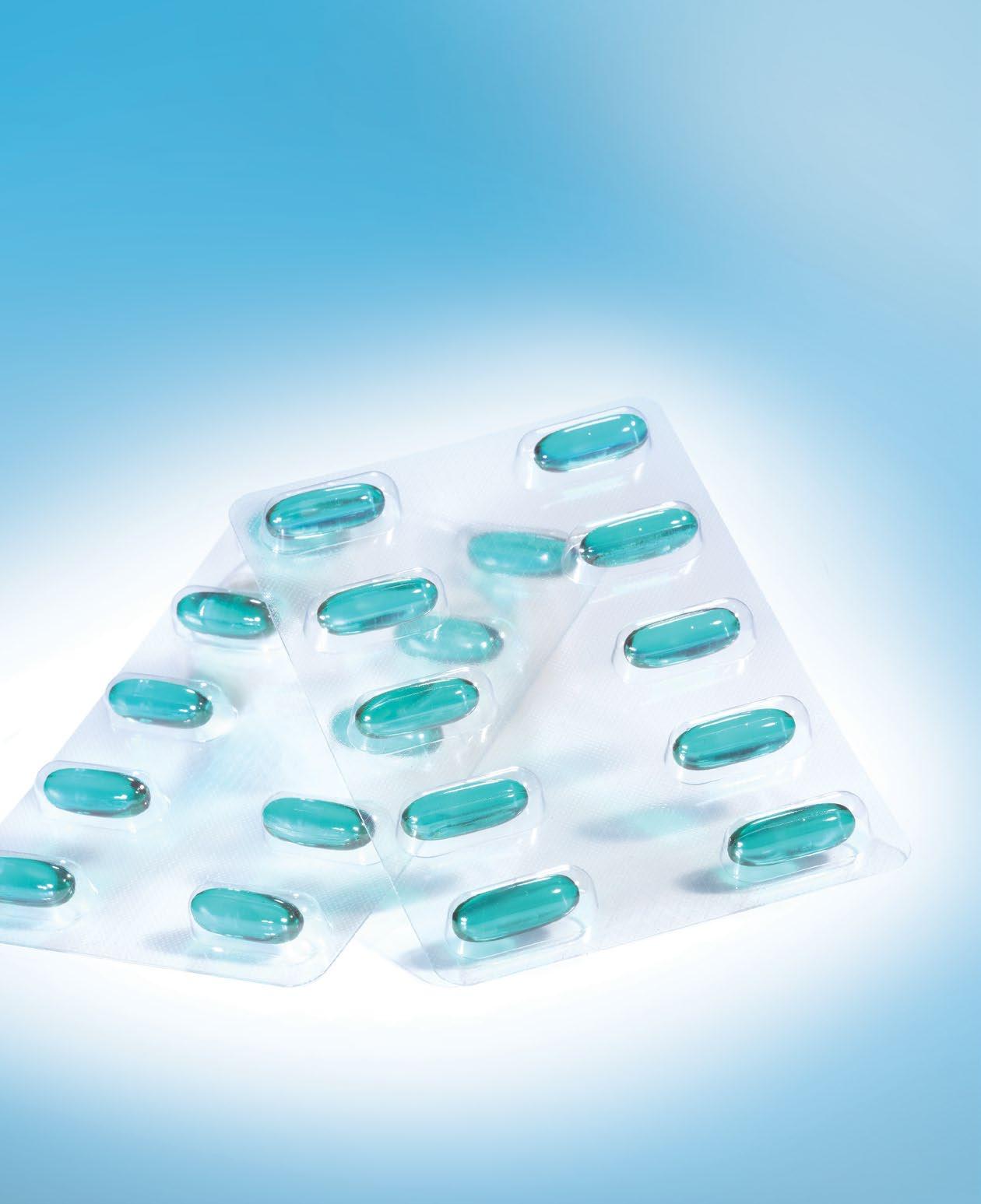

By switching its production plants in Pakistan and China to use green electricity, global packaging producer Ecolean is now sourcing 100 percent renewable electricity globally. Completing the shift to only purchase renewable electricity amounts to a 95 percent reduction of its Scope 2* carbon emissions, compared to Ecolean’s base year of 2018 – one of the key highlights from the Ecolean Sustainability Report 2020.
Renewable energy in all production sites globally
“We have worked hard on many levels to meet our commitment to use 100 percent renewable electricity for all our production plants by 2030. This target was actually met in 2020 by signing renewable energy agreements for our production sites in Pakistan and China,” says Anna Palminger, Sustainability Director at Ecolean Group.
Ecolean’s packages are 50-60% lighter than other types of liquid food packaging, which reduces environmental impact throughout the package’s lifecycle. Less raw materials used means energy and resource savings in production as well as lighter transportation. Most of the energy Ecolean uses is consumed in the production and manufacturing operations and by sourcing 100 percent renewable electricity, Ecolean decreases the environmental impact from its production even further.
Reducing climate impact by 95 percent
“If we compare our carbon emission levels from 2020 with data from our base year 2018, we save over 3,400 tonnes CO2-eq by sourcing 100 percent renewable electricity, which amounts to a 95 percent reduction in total in our Scope 2 emissions. This shows our dedication when it comes to doing everything we can to reduce the lifecycle impact of our products. Additionally, by sourcing renewable electricity for all our production sites, we can both reduce our climate impact, while helping to drive the demand for more renewable energy in society,” says Palminger.
Ecolean also increased the proportion of total renewable energy used in its operations from 81 percent in 2019 to 96 percent and is now working to replace the remaining non-renewable energy used in power aggregates.

About Ecolean
Ecolean develops and manufactures innovative packaging systems for the beverage, dairy and liquid food industry. Ecolean’s modern lightweight packaging solutions and resource-efficient filling lines offer both customer and consumer convenience and environmental responsibility. Ecolean is a global company with its headquarters in Sweden. Established in 1996, the company has commercial activities in over 30 countries, with China, Pakistan, Russia and Europe being its largest markets. Ecolean has 500 employees.
*Scope 2 refers to emissions from the consumption of purchased electricity










